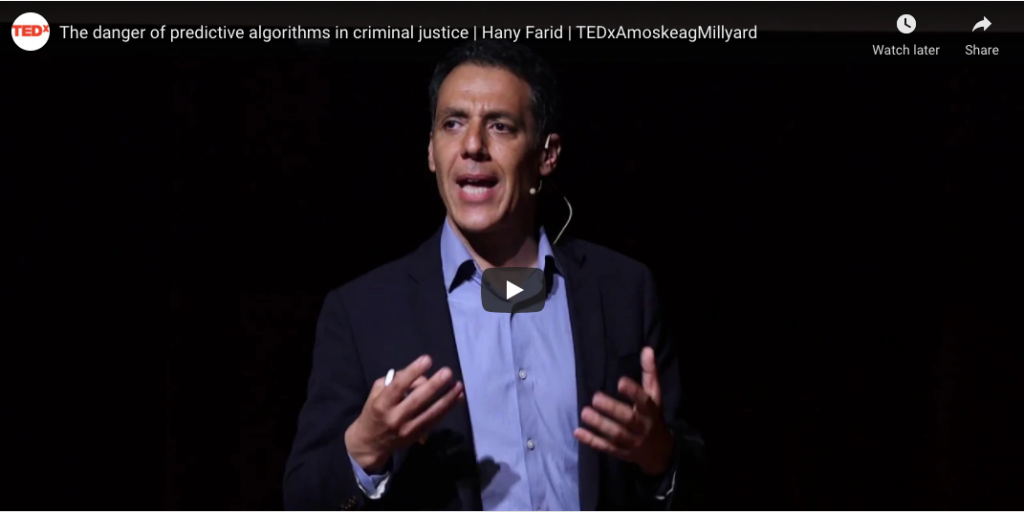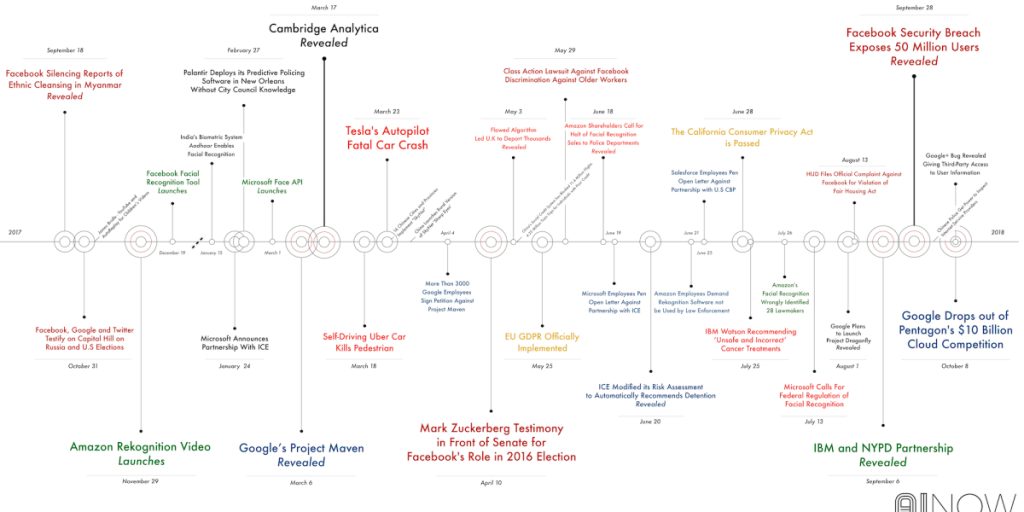Filter resources by type or complexity
All AdvancedArticleBeginnerIntermediateReportResearch PaperVideo
Racial Justice: Decode the Default (2020 Internet Health Report)
Technology has never been colourblind. It’s time to abolish notions of “universal” users of software. This is an overview on racial justice in tech and in AI that considers how systemic change must happen for technology to be support equity.
Read More
Unmasking Facial Recognition | WebRoots Democracy Festival
This video is an in depth panel discussion of the issues uncovered in the ‘Unmasking Facial Recognition’ report from WebRootsDemocracy. This report found that facial recognition technology use is likely to exacerbate racist outcomes in policing and revealed that London’s Metropolitan Police failed to carry out an Equality Impact Assessment before trialling the technology at […]
Read More
Machine Bias – There’s software used across the country to predict future criminals and it’s biased against blacks
There’s software used across the country to predict future criminals. And it’s biased against blacks. This is an article detailing a software which is used to predict the likelihood of recurring criminality. It uses case studies to demonstrate the racial bias prevalent in the software used to predict the ‘risk’ of further crimes. Even for […]
Read More
The danger of predictive algorithms in criminal justice
Dartmouth professor Dr. Hany Farid reverse engineers the inherent dangers and potential biases of recommendations engines built to mete out justice in today’s criminal justice system. In this video, he provides an example of how the number of crimes is used as proxy for race.
Read More
Apprise: Using AI to unmask situations of forced labour and human trafficking
The creators of the Apprise app share how they created a system assist workers in Thailand to avoid vulnerable situations. Forced labour exploiters continually tweak and refine their own practices of exploitation, in response to changing policies and practices of inspections.The article showcases efforts to create AI tools that predict changing patterns of human exploitation. […]
Read More
AI can be sexist and racist — it’s time to make it fair
Computer scientists must identify sources of bias, de-bias training data and develop artificial-intelligence algorithms that are robust to skews in the data. The article raises the challenge of defining fairness when building databases. For example, should the data be representative of the world as it is, or of a world that many would aspire to? […]
Read More
Establishing an AI code of ethics will be harder than people think
Over the past six years, the New York City police department has compiled a massive database containing the names and personal details of at least 17,500 individuals it believes to be involved in criminal gangs. The effort has already been criticized by civil rights activists who say it is inaccurat… The New York police department has […]
Read More
Adjudicating by Algorithm, Regulating by Robot
Sophisticated computational techniques, known as machine-learning algorithms, increasingly underpin advances in business practices, from investment banking to product marketing and self-driving cars. Machine learning—the foundation of artificial intelligence—portends vast changes to the private sect… This article highlights the benefits of artificial intelligence in adjudication and making law in terms of improving accuracy, reducing human biases […]
Read More